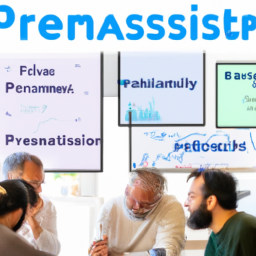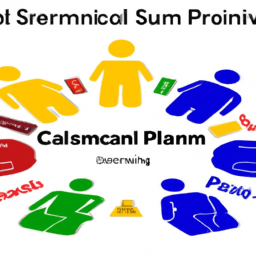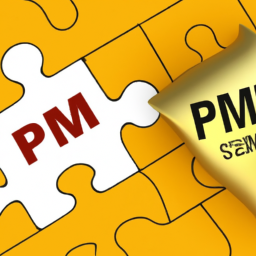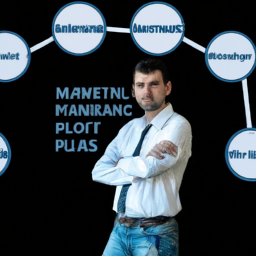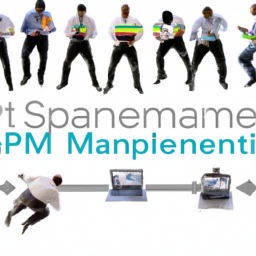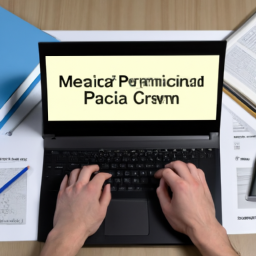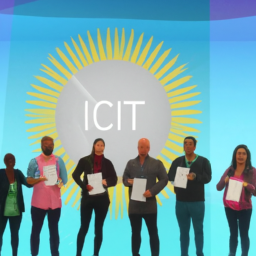Are you ready to conquer the PSM II exam? Prepare for success with our insider tips!
In this article, we’ll share essential study materials, effective strategies, and exam techniques to help you unlock your full potential.
Mastering the Scrum framework and principles is key to acing this test. So, get ready to dive deep into the world of agile project management.
Let’s begin your journey to PSM II success!
Key Takeaways
- Thoroughly study and understand advanced Scrum concepts, facilitation techniques, coaching and mentoring skills, and organizational design for success in the PSM II exam.
- Utilize recommended reading materials such as ‘Scrum Mastery’ by Geoff Watts and ‘The Professional Product Owner’ by Don McGreal and Ralph Jocham.
- Practice with mock exams to familiarize yourself with the question format and assess readiness.
- Develop effective time management skills by timing yourself during mock exams and allocating specific time for each section of the exam to ensure all questions are answered.
Understanding the PSM II Exam
Understanding the PSM II exam can be crucial for your exam preparation. The exam format is a combination of multiple-choice questions and essay-style questions.
It consists of 30 multiple-choice questions that test your knowledge of Scrum principles, practices, and frameworks. Additionally, there are 3 essay-style questions that assess your ability to apply Scrum in real-world scenarios.
The exam syllabus covers a wide range of topics, including advanced Scrum concepts, facilitation techniques, coaching and mentoring skills, and organizational design.
It is important to thoroughly study and understand these topics to excel in the exam. By familiarizing yourself with the exam format and syllabus, you can develop a targeted study plan and focus your preparation efforts on the areas that require the most attention.
Essential Study Materials
To ace the PSM II exam, it’s crucial to have the right study materials. Here are some recommended resources that will help you in your preparation:
-
Scrum.org website: The official website of Scrum.org is a valuable resource for understanding the PSM II exam. It provides detailed information about the exam objectives, recommended reading materials, and sample questions.
-
Agile books: There are several books that are highly recommended for PSM II exam preparation. Some popular ones include ‘Scrum Mastery’ by Geoff Watts and ‘The Professional Product Owner’ by Don McGreal and Ralph Jocham.
In addition to these resources, it is also important to practice with mock exams. Taking practice exams will familiarize you with the format of the questions and help you gauge your readiness for the actual exam. Scrum.org offers a variety of practice exams that you can use to assess your knowledge and identify areas for improvement.
Effective Study Strategies
Practicing with mock exams is a great way to familiarize yourself with the format of the questions and assess your readiness for the actual PSM II exam. Active learning is key to effective study strategies.
Instead of passively reading through study materials, engage with the content by actively participating in practice exams. This will help you identify areas where you may need further review and reinforce your understanding of the material.
Additionally, active learning allows you to practice time management skills, which are crucial during the actual exam. By timing yourself during mock exams, you can simulate the pressure of the real test and learn how to allocate your time wisely.
Mastering Scrum Framework and Principles
Mastering the Scrum framework and principles requires a deep understanding of the roles, events, and artifacts involved in Agile project management. To achieve success in Scrum implementation and Agile project management, you must grasp the following key elements:
-
Roles:
-
Product Owner: Responsible for prioritizing and managing the product backlog.
-
Scrum Master: Facilitates the Scrum process and ensures adherence to its principles.
-
Events:
-
Sprint Planning: Determines which items from the product backlog will be worked on in the upcoming sprint.
-
Daily Scrum: A short daily meeting where team members discuss progress, plan for the day, and identify any obstacles.
-
Artifacts:
-
Product Backlog: A prioritized list of requirements for the product.
-
Sprint Backlog: Lists the tasks the development team needs to complete during the sprint.
Exam Tips and Techniques
Remember, it’s essential to familiarize yourself with different exam techniques in order to improve your performance.
When it comes to exam time management, it’s crucial to have a plan in place. Start by breaking down the exam into sections and allocate specific time for each. This way, you can ensure that you have enough time to answer all the questions.
Additionally, practicing problem-solving techniques can greatly enhance your performance. Take the time to understand the underlying concepts and practice solving different types of problems. This will not only improve your problem-solving skills but also boost your confidence during the exam.
Remember to stay focused, manage your time effectively, and utilize problem-solving techniques to maximize your performance on the exam.
Frequently Asked Questions
How Long Does It Take to Complete the PSM II Exam?
On average, it takes about 90 minutes to complete the PSM II exam.
To prepare for the exam, you should use recommended study materials, which can include books, online courses, and practice exams.
These resources will help you gain a deeper understanding of Scrum and its application in complex scenarios.
Are There Any Prerequisites for Taking the PSM II Exam?
Before you can embark on the journey of the PSM II exam, it is crucial to understand the prerequisites.
Familiarize yourself with the necessary requirements and knowledge needed to excel in this advanced level assessment.
By focusing on the right preparation techniques, you can unlock the door to success and confidently navigate the challenges that lie ahead.
Be proactive in your approach and equip yourself with the essential skills to conquer the PSM II exam.
Can I Retake the PSM II Exam if I Fail?
Yes, you can retake the PSM II exam if you fail. The retake options provide you with an opportunity to improve your score and pass the exam.
It is important to review the passing criteria and identify areas where you need to focus and improve. By understanding the exam requirements and studying effectively, you can increase your chances of success on the retake.
Is the PSM II Exam Available in Multiple Languages?
Yes, the PSM II exam is available in multiple languages. This means that you have the option to take the exam in a language that you’re most comfortable with.
The availability of the exam in multiple languages ensures that candidates from different backgrounds and regions can participate and demonstrate their knowledge and skills in Scrum.
This flexibility enhances the inclusivity and accessibility of the PSM II certification process.
Are There Any Discounts or Promotions Available for the PSM II Exam Fee?
Looking to save on the PSM II exam fee? Well, you’re in luck! There are indeed discounts and promotions available for the exam.
By exploring cost-saving strategies, you can find ways to reduce the exam fee. However, eligibility requirements may vary, so it’s important to check the details.
Keep an eye out for any ongoing promotions or special offers that can help you save some money while preparing for the PSM II exam.
Conclusion
In conclusion, you now have the insider tips needed to unlock success in your PSM II exam preparation.
By understanding the exam format and utilizing essential study materials, you can effectively apply study strategies that will help you master the Scrum framework and principles.
Remember, practice makes perfect, so make sure to put in the necessary effort.
Just like a key that unlocks a treasure chest, these tips will open the door to your success, leaving you feeling accomplished and ready to tackle any challenge that comes your way.
Good luck!


